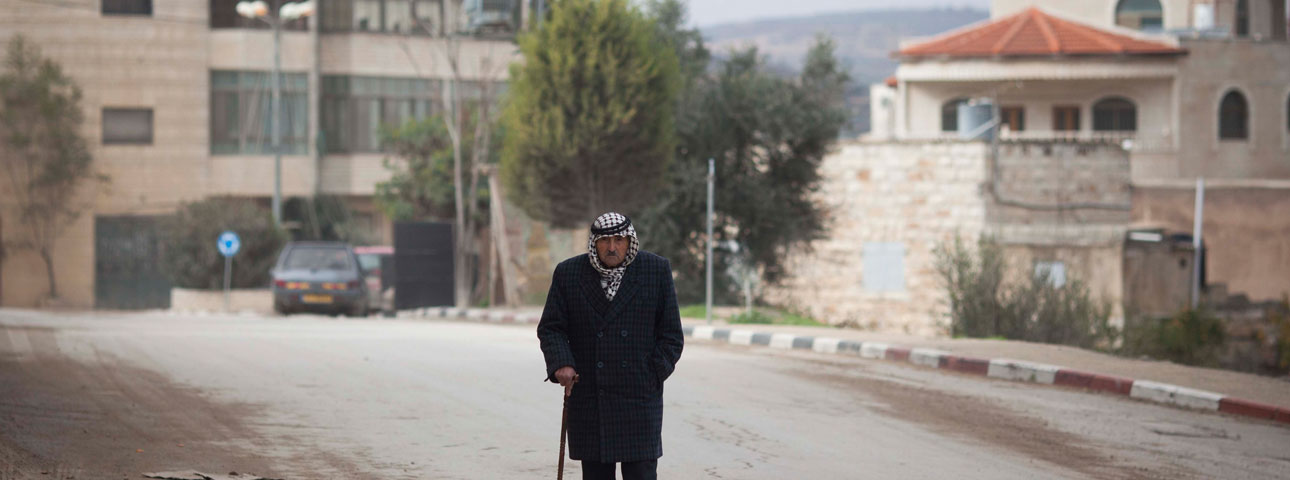The War on Crime in Israel's Arab sector isn't a Negotiable Commodity
Arab citizens have the right to feel that their security is protected by the government. This right should be respected and protected declaratively and in practice.

Flash 90
Prime Minister Benjamin Netanyahu’s wooing of the Arab society in general, and his recent visit to Nazareth in particular, are steps in the right direction. Although this may be a cynical campaign ploy, if the next Government really does improve the situation of Israel's Arab citizens and provides solutions to the problems that plague them—his motivation is less important.
Nevertheless, it is important to emphasize that the Arabs are perfectly capable of distinguishing between sincere intentions and "election economics" with no real substance. They will not blindly follow after any candidate who makes hollow promises and offers them spurious and bogus hopes that will evaporate into thin air leaving not a trace on March 24, the day after the Knesset elections; all the more so--in light of the Prime Minister’s dubious record on this front. This is why his meeting with the National Committee of Arab Local Authorities this week, at which he committed to launching a series of actions and programs to stamp out crime and violence in Arab society, will not win Netanyahu any points. Only actions-- by him or anyone else --will succeed in doing so.
Above all, Netanyahu and other candidates seeking to win the trust of the Arab public, must make an unequivocal commitment to ensuring that the response to crime on the Arab street, is not conditional on support for any particular party, or on the willingness of Arab Knesset members to cooperate with the Government on legislative initiatives. The war on crime is not a negotiable commodity and should not be used as a means for achieving political goals. Just as vaccination against the coronavirus cannot be conditional on party loyalty; neither can the war on crime.
The candidates running for the office of Prime Minister and all the other politicians who have suddenly started wooing Arab voters would be well advised to acquire an in-depth understanding of the problems confronting this society. They should propose concrete and feasible measures to deal with—first and foremost, the raging crime wave in Arab communities, which according to recent surveys, Arab citizens of Israel identify this as their most pressing problem.
A good place to start would be a look at the data of the recently published 2020 Israel Democracy Index. According to the Index, most Israelis-- both Jews (67%) and Arabs (82%) --believe that the Police deal more assiduously with crime among Jews than with crime among Arabs. As a result, public trust in the police is quite low with only 44% of Jews, and a third of the Arab citizens of Israel expressing confidence in Israel's law enforcement officials..
These figures indicate that the low level of trust derives not only from under-policing, but also from over-policing. The public sentiment reflects a deep- seated distrust of the police. The burden of proof rests on the latter, as the agency tasked with standing at the forefront of the war on crime and violence in Arab society, but which has failed woefully in terms of achieving results.
The Israel Police must ensure safe streets in Arab localities. Doing so should be a top priority of the new Chief of Police. To succeed, he will have to cooperate with Knesset members of the Joint List, the National Committee of Arab Local Authorities, and Arab civil society organizations, in order to draft an effective multiyear plan offering solutions for combatting the crime and violence on the Arab street, and for waging war against the criminal gangs dominating it today. In this way, trust in the police among Arab Israelis, which is an essential prerequisite for success in this campaign, will be enhanced. More importantly, thanks to this cooperation, the intolerable prevalence of crime and violence that has been the almost daily fare of the Arab community over the past year will be drastically cut back.
The Arab citizens of Israel have the right to feel that the State protects their security. The State must respect this right, protect it and implement it in practice. First and foremost, the huge gap between the sense of security among Arab citizens and Jewish citizens must be narrowed, if only because the day is not far off when the crime raging on the Arab street will spill over and threaten Jews’ sense of security as well. Needless to say, this should not be the reason for taking action; but if that is what it takes to persuade the authorities to take up the challenge—so be it.
The article was published in the Jerusalem Post.
